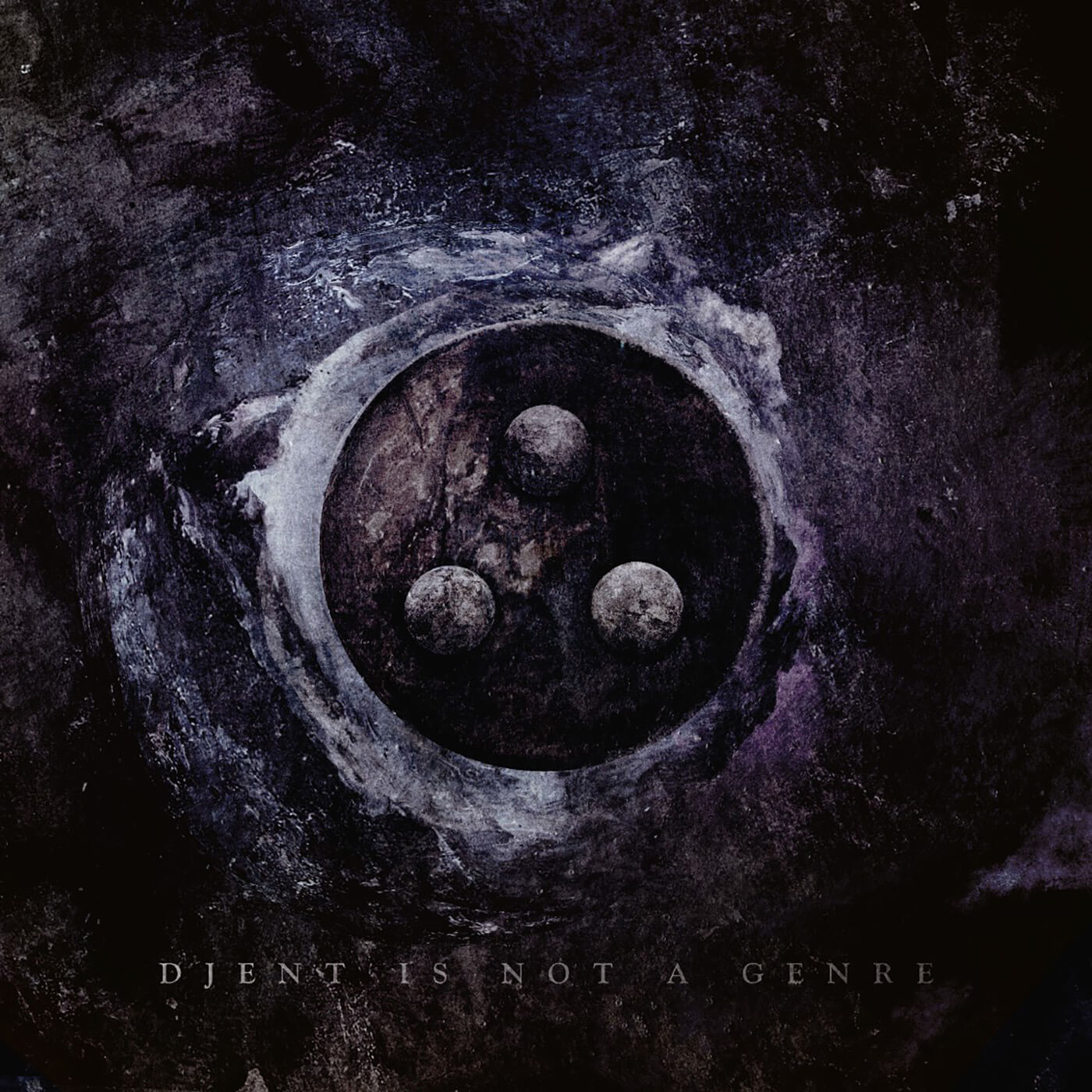“We like to lovingly take the piss out of our fans!” Periphery on why Djent is, actually, a genre
Guitarists Misha Mansoor, Jake Bowen and Mark Holcomb reflect on writing Periphery V and making metal at the dawn of social media.

Image: Press
Periphery V: Try Harder with a Vengeance. Periphery V: When I Say Squeeze… Squeeze. Periphery V: In Space, No One Can Hear You in Space.
These were all runners-up when Washington DC’s prog metal pioneers were trying to name their seventh album. In the end, they settled on Periphery V: Djent Is Not a Genre. That’s because, outside of the music they make, this is a band that takes absolutely nothing seriously.
When Periphery founder Misha Mansoor joins our Zoom call with his two fellow guitarists, Mark Holcomb and Jake Bowen, he instantly doubles down on not giving a fuck about anything. “Djent is not a genre – it’s a lifestyle!” he chuckles after the very first question, when he’s asked about why his new album is called what it is. “I just love the idea that it might say on some database somewhere: ‘Periphery V: Djent Is Not a Genre. Genre: Djent.’” He laughs again, even louder and happier. “It’s the little things in life.”
He goes on to talk about brilliant bands with horrible monikers – “Karnivool are one of my favourites of all time, but that is a terrible name!” – and that’s when Mark and Jake reveal themselves as matching their leader’s level of fuck-giving, exchanging punchlines that each receive a round of giggles. “Can I give you the best example of that?” Mark smirks. “Korn.”
“I should add that it probably took us the length of writing the album, which was close to three years, to come up with ‘Djent Is Not a Genre’,” Jake jokes. “That was the only idea we had where we all just weren’t like, ‘Urgh!’”
None of this comes as a surprise. If you’ve been an acolyte of Periphery’s for any length of time, you already know that having a sense of humour is a prerequisite. Their last album was called Periphery IV: Hail Stan – and no, that’s not a typo. Even before that, they were penning songs called Ow My Feelings, Jetpacks Was Yes and Froggin’ Bullfish. And, just to demonstrate how seriously they don’t take what they title things, they actually do think djent is a genre.
“I feel like we have to preface our reasoning [for calling the album that] with the fact that we like to lovingly take the piss out of our fans. Lovingly!” Mark insists. Jake laughs. “Thanks for putting it like that, Mark,” he replies. “They’re all mad that we named it that, because we’re clearly a djent band.

“I’ve had various opinions on ‘djent’,” Jake continues. “We started out as a progressive metal band in our heads and then got put in this thing. To me, it sounded weird. It didn’t have the sort of aesthetic I was hoping for, if it ever happened where we got put into some new genre or criteria. But, over the years, I’ve lightened up on it. Look at grunge. I think grunge is an incredibly stupid name for a genre but, when you hear ‘grunge’, you think of Nirvana and Alice in Chains and Pearl Jam and Soundgarden: all these world-class, history-altering bands.”
So… what actually is djent? Wikipedia will tell you that it’s “a subgenre of progressive metal characterised by its use of off-beat and complex rhythm patterns”, but in truth there’s infinitely more to it than that. Djent is a movement that began in the mid-2000s, started by guitarists infatuated with, and recreating, the polyrhythmic seven-string picking of Meshuggah. The sound a palm-muted low G string makes is what gave the genre its onomatopoeic name, and its progenitors include Misha, TesseracT founder Acle Kahney and Skyharbor’s Keshav Dhar. However, unlike every heavy metal movement before it, djent wasn’t anchored around a geographical location: it was guitar geeks posting riffs to forums and MySpace from their bedrooms, all over the world.
“It was an interesting time because this was right when things were transitioning,” Misha remembers. “I was one of the guys on that first wave where it was like, ‘Hey, studios aren’t necessary anymore. Budgets are going down, record sales aren’t a big factor: the entire nature and budget of a record deal is changing.’
“It was so weird,” he adds, “because all the younger people at these labels were like, ‘You gotta sign Periphery,’ but all the higher-ups who were a bit older – and who saw the internet and MP3s as a fad, sort of hopefully – didn’t quite understand us. They made as much clear both in what they said to us and the offers they gave us. We actually got a lot of offers but they were all terrible. For about three years, I was just turning down record deals.”

Extraordinary Djentlemen
Periphery have long since left Misha’s bedroom behind, thanks to what the guitarist calls an “aggressive” record deal from Sumerian, who released their debut album in 2010. Yet, ironically, Djent Is Not a Genre is still a djent album. Opener Wildfire opens not gently, but djently, its drum roll cuing an onslaught of downtuned chugs interrupted by squealing harmonics at random intervals. Atropos is similarly infatuated with the furthest reaches of the fretboard, as is Dying Star, Zagreus and Everything Is Fine!.
There’s still many a touch showing the truly progressive music-makers Periphery always wanted to be though. Frontman Spencer Sotelo injects volumes of variety with his swaps between roars and singing. Interlude Silhouette throws its arms into the air and declares, “Fuck it!”, embracing synthwave and pulsing EDM beats. Then come Dracul Gras and Thanks Nobuo: Djent Is Not a Genre’s closing duology, which together take up 24 minutes in a cavalcade of prog, djent, pop and post-rock.
All the while, Periphery have sewn in references to their former glories. Wildfire, for example, recreates a melody previously employed on The Event: an instrumental segue on their two-part rock opera, 2015’s Juggernaut.
“We originally wanted to make Periphery V a follow-up to Juggernaut, but that was scrapped pretty quickly,” Mark reveals. “Then the discussion came: ‘Do we keep some of these references?’ One of the things I’ve always appreciated about the sort of bands I look up to – like Devin Townsend, my favourite musician ever – is that for no rhyme or reason, he’ll reference a song he put out 18 years ago. That to me always dripped with this sort of freedom he had with his extensive back-catalogue. It seemed like this unattainable place that I wanted to get to one day as a musician.”
Why was the idea of Juggernaut 2 scrapped? “Writing a concept record is challenging, as we remember from doing Juggernaut,” Mark answers. “You have to adhere to so many different criteria: not only are you writing songs on a record that should flow organically, but you have to make them fit into a narrative. You have to have the lyrics match up and tell a story as the music exists underneath it and does a similar thing. It’s a long, torturous process.”

Burnout paradise
The concept album confusion is emblematic of the creatively stifling conditions Periphery wrote Djent Is Not a Genre under. According to the band themselves, it almost broke them. When the pandemic hit, the members tried to write remotely, but lacked that in-the-moment feedback to make any progress. Misha explains: “We had all these ‘almost ideas’, but we needed to see if Spencer liked them and if we could actually arrange them into a song. We had all these sections of songs that [by themselves] didn’t mean anything.”
Collaboration through Zoom didn’t work either. As a result, Periphery used the isolation to individually compose their own albums: Jake dabbled in electronica on The Daily Sun, Mark resurrected his extreme metal band Haunted Shores, Misha revisited his solo project Bulb, and Spencer and drummer Matt Halpern did the emo-prog team-up King Mothership. Even this worked against them though. Because of all that songwriting, by the time the band got to reconvene in person in October 2020, Periphery were already “further along on the burnout scale than we wanted to be”, as Mark puts it. The end result is that, as Jake previously alluded to, Djent Is Not a Genre took nearly three years to make.

“It was a double-edged sword,” Mark reflects, “because we knew we were taking a long time on this record and our fans were getting antsy. It drove us to the edge of sanity taking so long. But I think this was the only way to do it, considering the point in time at which we started the record. If we had to rush a record out to meet some kind of deadline, that would’ve been difficult.”
The end result of the arduous sessions, though, is that Periphery have made an album they love. Goofy name aside, Djent Is Not a Genre captures the band at their most eclectic and forward-thinking. Djent is a genre, but – amid these songs’ synths and hooks, and even a sax solo or two – it’s by no means the be all and end all for its stateside pioneers.
“Ultimately, if we’re not happy with it, the album doesn’t come out,” Misha summarises. “We were being very hard on ourselves but that’s how we end up with an album we can be genuinely proud of. That was the only acceptable end goal. Commercially, we’ll take whatever we get, man. I don’t wanna speak for the others, but…”
“Yeah, don’t speak for me!” Jake interrupts, before ending the conversation as jokingly as it began: “I wanna sell out everything everywhere! Gimme that money!”
Periphery V: Djent Is Not a Genre is out on March 10 via 3DOT.
